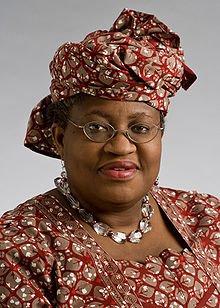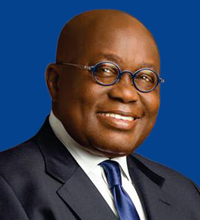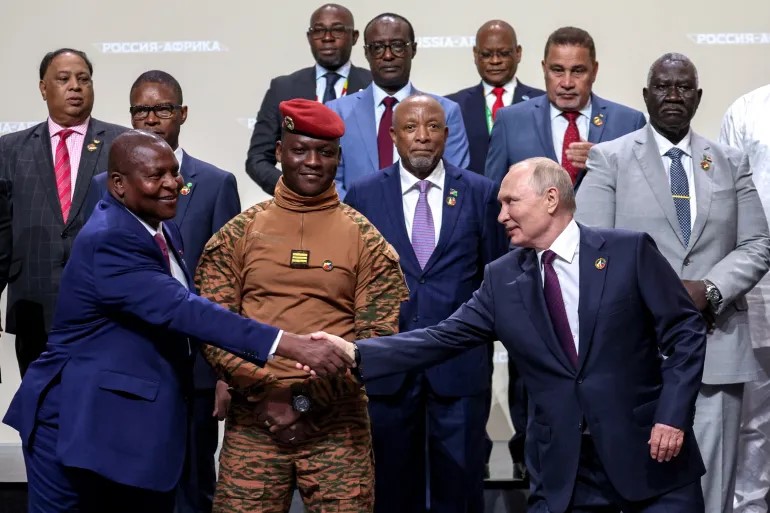

The Russian - Africa summit; A Development Partnership Or An Alliance?
Click to view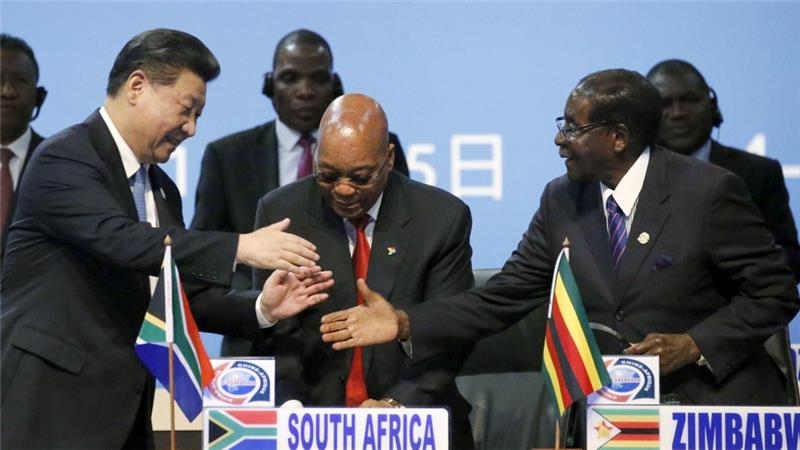
FOCAC 2015, China pledges $60 billion in development funding to Africa; is this new or old money?
Click to view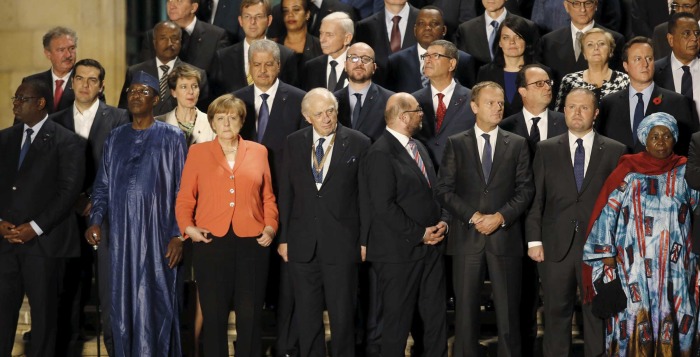
European and African leaders in search of common grounds on immigration policy
Click to view
The Russian - Africa summit: A Development Partnership Or An Alliance?
- Details
- Written by Eric Acha
- Category: News
- Hits: 20848
The Russian - Africa summit: A Development Partnership Or An Alliance?
Amidst the ongoing war between Russia and Ukraine, Russia has somewhat succeeded in organizing a second Russia-Africa summit in St Petersburg. The summit which many have questioned its motives given its timing, seeks to redefine and shape the Africa-Russia relationship in ways only seen during the cold war era, as Russia’s current conflict with the West deepens.
This somehow affirms the assertion that the primary motivation of the current summit is aimed at winning African countries over in this new conflict prone era, rather than the claimed strengthening of economic, development, cultural and security ties.
The Russia-Africa Summit, held for the first time in October 2019, and was aimed at strengthening economic, political, and cultural ties between Russia and African nations. Many of the promises made during the first summit are still to be realised, notably the promised doubling of trade with Africa to $40bln. As of 2022, the total trade stood at $18bln. It would be fair to state that the covid era might have had some tremendous impact on this figure, hence the next few years will be crucial in determining the true motives of this relation.
In the 60s, Russia delineated a lot of interest in Africa and went as far as creating a University to train personnel from most newly independent African nations. It even named the University Patrice Lumumba University, in honour of the heroic African nationalist and pan-Africanist, Patrice Lumumba who was executed in January 1961. This was all part of its cold war diplomacy, because as soon as Russia started normalizing its relationship with the West, Africa became less and less of a priority. By 1992 (post-cold war era) Russia had renamed the University to the Peoples' Friendship University of Russia, following a decision taken by the Russian government, and had very little and insignificant conventional trade with Africa. Shortly after the Russia/Ukraine war started, Russia’s Minister of Education and Science signed a decree to return the name of Patrice Lumumba to the university in March 2023.
However, as it is with any major international event of this nature, there are expectations, both potential benefits and drawbacks:
Potential Benefits
- Diversification of Partnerships: Everything being equal, the summit provides an opportunity for African countries to diversify their partnerships beyond traditional allies. Over the years since independence, most African countries have maintained ties along colonial lines, with the former colonizers having much influence in almost every aspect of the former colony, and somehow acted as gate keepers through whom all other partners had to go. Engaging directly with Russia, as it was with China can open up new avenues for trade, investment, and technology transfer, potentially reducing Africa's overreliance on a few major trading partners.
- Access to Russian Expertise and Technology: Russia possesses expertise in areas such as energy, mining, and defense, which could be beneficial for Africa's development, only if both sides are committed as partners. Collaboration with Russian companies and institutions may facilitate technology transfer and skill development in these sectors, provided Russia is engaging in good faith, and not just playing the old cold war era diplomacy. The countries engaging with Russia must remain vigilant, and have an effective mechanism in place to follow up on all promises made.
- Development Finance and Investment: Provided the current war does not become very costly for Russia, the summit may lead to increased Russian investments in African infrastructure and development projects. Russia's participation in these areas could help address the continent's massive infrastructure deficit. There is however, little or no data to suggest the summit will lead to increase investment, and unlike the Chinese, there’s no track record of huge Russian infrastructure projects across the continent.
- Counterbalance to Western Influence: Some African countries view engagement with Russia as a way to balance out the dominance of Western powers in their affairs. By diversifying their partnerships, African nations can potentially gain more leverage and see a shift in international negotiations. This potential new shift was witnessed when a group of African leaders led by the South African and Egyptian presidents Cyril Ramaphosa and Abdel El-Sisi opted to mediate for peace between Russia and Ukraine. Here Africa was not just being seen as conflict infested continent, but a potential mediator in a conflict on European soil. The attempt was seen by many as having no credence, due to the leaders inability to resolve most of the conflicts on the African continent.
- Security Guarantees: Most African countries today are faced with both internal and external threats, and countries in the Sahel region are seen as facing existential threats from Isis and other terrorist groups, whom they believe years of reliance on the West has only worsen the situation. That is the narrative. You also have autocratic nations who for one reason or the other have ran out of favour with the West, and therefore feel threatened, thus turning to Russia for security guarantees is their only best option. In recent years, the Sahel and Central African regions have seen the prominence of Russian mercenaries, notably the Wagner para-military group playing key roles in the security structure. The group, which has featured repeatedly in numerous human rights reports for alleged human rights abuses, is suspected or having strong ties and enjoying support from of the kremlin. Hence Wagner is an extension of the Russian army on the African continent. The recent rift between the Russian government and the Wagner Group under Yevgeny Prigozhin should serve as a warning to any African country engaging the services of Wagner.
Potential Drawbacks for Africa:
- Geopolitical Considerations: Some skeptics argue that Russia's engagement in Africa is driven by geopolitical interests rather than genuine development concerns. African countries need to carefully assess the intentions behind Russian investments and ensure that they align with their own long-term development goals.
- Debt Concerns: Russia is indicating a major cancellation of debts owed by African nations. Should this materialize, and without attached conditions, it could lead to additional borrowing. Increased borrowing from Russia could potentially expose African countries to debt-related risks. It is essential for African nations to negotiate favorable terms and ensure that loans are used responsibly and effectively.
- Human Rights and Governance Issues: Russia has faced criticism for its record on human rights and governance. African countries should be cautious in their engagements and ensure that cooperation does not undermine their efforts to uphold democratic principles and protect human rights.
- Competition with Other Partnerships: Under normal circumstances, engaging with Russia should complement, not replace, existing partnerships. African countries should avoid getting entangled in geopolitical rivalries and strive for mutually beneficial relationships with all partners, else Africa could end up being a battlefield for proxy conflicts between Russia and West. African leaders must deal with this very diligently.
- Lack of Transparency: Concerns have been raised about the transparency of some Russian deals in Africa. African governments should insist on transparent and accountable business practices to avoid potential corruption and ensure that the benefits of cooperation reach their citizens.
In summary, the Russian-Africa Summit presents both opportunities and challenges for the continent. African nations should carefully consider their engagement with Russia, ensuring that it aligns with their development priorities and contributes positively to the well-being of their citizens. Transparency, responsible borrowing, and clear alignment with development goals are essential for maximizing the benefits while mitigating potential risks. The urgent desire to secure the flow of grain in the short term should not be the core of what defines the Russia - Africa relationship. How Russia emerges from the current conflict with Ukraine will be crucial in determining its future relationship with Africa.
Contact: acha [at]africanpolicyforum.org
The views represented herein are those of the author(s) and do not necessarily reflect the views of the Africa Policy Forum
Featured Articles List
- Details
- Written by APF
- Category: News
- Hits: 13138
A Ghana (Sub-Saharan African) beyond AID
President Akufo-Addo
We can no longer continue to make policy for ourselves, in our country, in our region, in our continent on the basis of whatever support that the western world or France, or the European Union can give us. It will not work. It has not worked and it will not work”, he stressed.
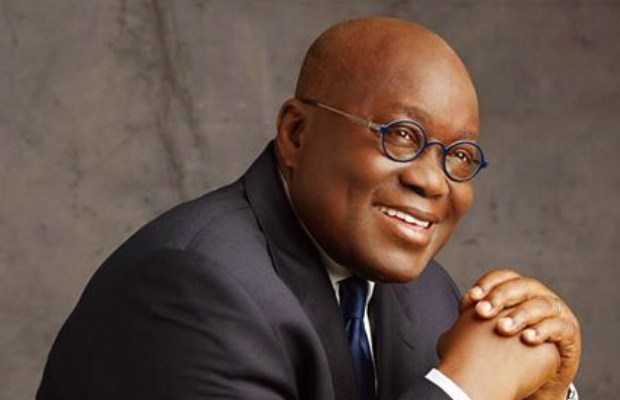 We have to get away from this mindset of dependency. This mindset about ‘what can France do for us?’ France will do whatever it wants to do for its own sake, and when those coincide with ours, ‘tant mieux’ [so much better] as the French people say…Our concern should be what do we need to do in this 21st century to move Africa away from being cap in hand and begging for aid, for charity, for handouts. The African continent when you look at its resources, should be giving monies to other places…We need to have a mindset that says we can do it…and once we have that mindset we’ll see there’s a liberating factor for ourselves,” his rising tone and demeanor demonstrating his passion for this subject.
We have to get away from this mindset of dependency. This mindset about ‘what can France do for us?’ France will do whatever it wants to do for its own sake, and when those coincide with ours, ‘tant mieux’ [so much better] as the French people say…Our concern should be what do we need to do in this 21st century to move Africa away from being cap in hand and begging for aid, for charity, for handouts. The African continent when you look at its resources, should be giving monies to other places…We need to have a mindset that says we can do it…and once we have that mindset we’ll see there’s a liberating factor for ourselves,” his rising tone and demeanor demonstrating his passion for this subject.
African Leaders Should Accept Their Failure in Solving Conflicts on the Continent.
“when I am watching TV and see our leaders, who should have been working together all along to address these problems that commonly affect their countries wait until they are invited to Europe to seat there and just talk; why does anybody wait for that?.
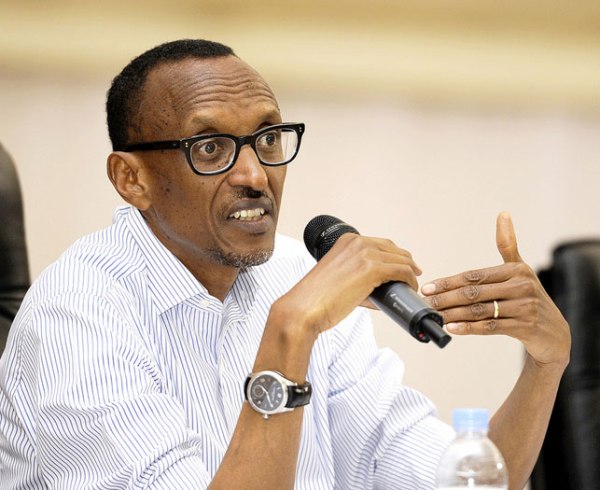
President Paul Kagame, known for his outspoken nature took the central stage last week while contributing to a panel discussion at the on-going African Development Bank's annual meeting taking place in the Rwandan capital Kigali. The Rwandan president in his soft but firm tone stated that African leaders should accept their failure in solving conflicts on the continent. The theme of the session to which he was contributing was “Solving conflicts and Peace building in Africa”, and had the former president of Nigeria Olesegun Obasanjo amongst others as a panellist.
The US- Africa Summit; A direct policy response to the Sino-African relations or a genuine new chapter in the U.S-Africa relations?
- Details
- Written by APF
- Category: Latest
- Hits: 25975
The US- Africa Summit; A direct policy response to the Sino-African relations or a genuine new chapter in the U.S-Africa relations?
By Eric Acha
28 July 2014
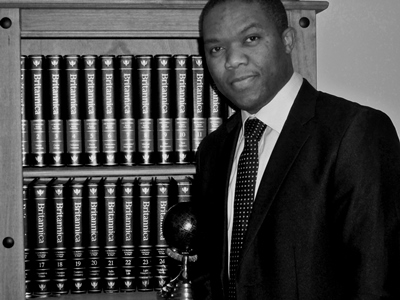 It is fair to assert that it has taken America decades to realise the true potentials of an emerging Africa, and that she is only doing so on the heels of growing Chinese influence on the continent. This assertion has led many experts to believe that the well-publicised upcoming US-Africa summit in August is another opportunity for the US to re-strategize and come up with policies that will counter and contain the growing Chinese presence and influence on the continent. Truth be told; there’s growing concern within the corridors of power in most western nations notably; France and the United States that, giving the speed at which China is penetrating Africa, China could soon start enjoying the level of political influence in Africa that was historically held by France and the United States. With this in mind, both countries have had to go back to the drawing board and drastically redesign their African policies, with each one of them emerging with different strategies and policy options to contain the Chinese expansion and grip on the continent. The forthcoming US-Africa summit could be seen as yet another opportunity to re-engage with Africa. However, for this to yield any fruits, many looming questions must be sincerely scrutinised and answered.
It is fair to assert that it has taken America decades to realise the true potentials of an emerging Africa, and that she is only doing so on the heels of growing Chinese influence on the continent. This assertion has led many experts to believe that the well-publicised upcoming US-Africa summit in August is another opportunity for the US to re-strategize and come up with policies that will counter and contain the growing Chinese presence and influence on the continent. Truth be told; there’s growing concern within the corridors of power in most western nations notably; France and the United States that, giving the speed at which China is penetrating Africa, China could soon start enjoying the level of political influence in Africa that was historically held by France and the United States. With this in mind, both countries have had to go back to the drawing board and drastically redesign their African policies, with each one of them emerging with different strategies and policy options to contain the Chinese expansion and grip on the continent. The forthcoming US-Africa summit could be seen as yet another opportunity to re-engage with Africa. However, for this to yield any fruits, many looming questions must be sincerely scrutinised and answered.
Is America stepping in late? Can the Americans match the Chinese success in curbing and nurturing Africa at the same time? Can they move in with full packages like the Chinese do? Have they got the extra money to spend like China? Can the Americans establish relationships based on friendship and mutual understanding rather than the tutor-student relationship that is being perceived by many Africans? Can the Americans compromise on their values for democracy and human rights in favour of a “cordial and friendly relationship”? What of the non-interference policy being advocated and practised by China? A well-known and highly adorable sweetener in the Sino-African relations has no match, especially with proponents and advocates of democracy and the respect of Human rights. With a capitalist system in place, how will America create and bank role state owned corporations to take on big and visible projects in Africa in return for natural resources?
To be able to answer the above questions, one will need a full understanding of the foundations on which these relationships with Africa are established and how they have evolved over time.
Looking at all the barrel of questions, it is evident that China’s huge and expanding presence and success in Africa is not by chance or luck. It has been a well thought and worked out strategy in the making for many years. A Chinese foreign minister Li Zhaoxing once stated that “today’s Sino-Africa relationship is viewed by both sides as deep-rooted and forged in years of mutual support “. Well, that is the Chinese narrative, and what they do not also tell the world is that it is an unbalanced relationship in which one out-powers the other in everything, leaving the weaker with little or no bargaining power or a better alternative.
Early foreign policy reforms embarked on in the early 90s by the Chinese government regarding Africa can be credited for the country’s success on the continent. As early on as 1995, the commerce ministry, on orders from the Chinese state council was instructed to reform its Africa policies, prioritising any link between aid and trade. Creating the Forum on China–Africa Cooperation (FOCAC) in 2000 was a clear indication that there was a true commitment within the highest level of Chinese government to foster bilateral trade and relations with Africa. The cornerstone of this commitment was the Chinese believe in the continent and willingness to take risk while the rest of the world’s investment community watched from a safety distance. Note, FOCAC was launched in October 2000; five months after the US congress had approved the African Growth and Opportunity Act (AGOA).
Via partnership programs with host countries, the Chinese government has help fund multimillion dollar projects across the continent, most in infrastructure ranging from road construction, power plants to rail ways. To many Africans, this is the kind of investment and development aid the continent has been yearning for and not development aid in the form of wheat and flour or digging wells. Even if the oil and other natural resources are being siphoned to China, they are at least leaving behind visible investments.
So far Africa seems quite comfortable with that relationship with China, but not to the satisfaction of the US, who sees China’s presence in Africa as being exploitative and on many occasions has had to voice these concerns openly. In 2012, Hillary Clinton, the then US secretary of state while on an African tour warned Africans against unnamed “outsiders” coming to “extract the wealth of Africa for themselves, leaving nothing or very little behind.” It was obvious who the unnamed outsider was. China feeling guilty, quickly responded by accusing the United States of seeking to sow discord between China and Africa while keen to reap benefits for itself from the booming continent. It is indeed a battle between two elephants.
America and other proponents of democracy believe China has no plans to halt its expansion on the continent even when democracy and humans rights are at risk. But fairly speaking, if one was to do a survey in many African countries on what they will choose between visible development and democracy, we all can guess the outcome. Very few will want to compromise any development initiative or project (even with known long term exploitative objectives) for democracy. That is not to say democracy does not have its place. Both should go hand in hand. America seems trapped in a dilemma, given that on one hand they do over emphasised democracy; while on the hand continue to support some autocratic and in some cases military regimes on the continent. These mixed messages have not been doing America any good.
The African Growth and Opportunity Act (AGOA) approved by the US congress and passed into law in 2000 was a golden opportunity for the United States to re-engage Africa and take over the front seat in piloting the continent’s growth. However, the lack of commitment and the limitations with AGOA explains why 14 years down the line; the US is still trying to catch up. First and foremost AGOA which granted preferential duty-free and largely quota-free access to the U.S. market for some 1,800 products from 41 sub-Saharan African countries was a bold and a major step taken by the US to engage with Africa on the trade front, however the details of the program lacked the ingredients required to enhance and kick start growth on the continent. Secondly AGOA highly publicised as a program aimed at encouraging exports from Africa, failed woefully in encouraging new product lines being exploited and exported to America. There was hardly any investment in infrastructures to boost new productivity, whether be it in the garment industry or basket weaving.
The program ended up only facilitating exports in products that would have been exported with or without AGOA. For example, 2008 figures show that African countries exported over $66 billion worth of products to the United States, an increase of almost 30% from 2007. But more than $62 billion, or 94%, came from oil and gas and minerals, products that would have been exported with or without trade preferences. Similar in 2013, oil and petroleum products accounted for over 80% of the exports to the United States from African countries. Hopefully, the shortcomings of the AGOA program that is expected to come to an end in 2015 will be used as a yard stick and learning curve for future engagements with Africa. America had the opportunity in Africa, but lost it to China.
Another bone of contention between the US-Africa relationship is the perception held by many Africans with regards to the Washington consensus. For close to three decades today, the market fundamentalism or neoliberalism (Washington consensus) being implemented by the World Bank, and her sister institution the International Monetary Fund has had very little noticeable impact in developing the African continent and alleviating poverty via economic growth. It is again fair to assert that both institutions failed to jump start the continent’s economy. Many [1]studies have concluded that the strings and conditions attached to most development aid under the Washington Consensus were dampening rather than encouraging economic growth on the African continent. Even still in cases where lesser strings and conditions were attached, the implementation mechanism of policies designed in Washington had very little impact, since they often failed to directly address the problems and challenges facing the struggling masses.
The Washington consensus on a grand scale agreed and encouraged developing countries to export more of their natural resources including cash crops to international markets, so as to raise funds for servicing debts. Countries implementing the Washington Consensus (structural adjustment and stabilisation programs) were often forced to cut spending on vital sectors such as health, education and development so as to meet up with debt repayment plans.
This left many impoverished African countries with no glimpse of hope to ever industrialise and diversify their economies.
Many impoverished countries were often encouraged to concentrate on the production of cash crops similar to other developing countries, which obviously resulted to a surplus in the market and hence leading to a drastic fall in prices on those products and commodities, this to the benefit of the richer and developed nations. Fairly speaking, the Washington Consensus, from its inception was never designed to enhance development, economic growth and fully alleviate poverty in the developing countries. In a real world, it was/is a well-crafted debt creation and collection tool. The only thing the Washington Consensus succeeded in doing was widening the gap between the rich and poor, and creating new oligarchs in countries that were implementing privatisation programs.
Twisting the arms of developing countries to carry out recommended structural reforms at the expense of key functions of the state was never going to be growth enhancing. This may be explains why for over a quarter of a century, the World Bank and the IMF despite spending a chunk of cash, have failed to deliver tangible results in Africa.
Contrary to these conditional and strings development aid, the Chinese aid comes with no strings or conditions attached to it. However encoded within the aid packages are pseudo long term exploitative objectives whose adverse impacts are often too blur to see. The perception being portrait by China is that, they have agreed to deal with African countries as partners in development rather than the master-servant relationship practiced by the western nations in Africa. As per the Chinese narrative, it is a give and take kind of relationship.
The coming of the Chinese with their new model, aka the Chinese full package (Money, Technical expertise and protection from international sanctions) changed the balance. The complete package, from the sound of it is always too good to not tempt many African leaders, especially those with murky human right records. But the big question is, to what extend can these countries rely on China for protection in the event of a unilateral action, say from one of the super powers? For now, and lessons from recent events have shown that the probability of China stepping in and preventing a military action with the use of counter force is close to, if not zero per cent. In that full package, their guaranteed protection ends at blocking UN Security Council resolutions against countries in which their interest is at stake. But as soon as the Security Council is by passed, China has proven not to have the guts to stand in the way. Sadly in some instances, they have quickly switched sides to get closer to the winning group so as to secure their interest when the new group takes over.
Possible policy options if the US-Africa summit fails to achieve its goals
If the summit fails to achieve its defined goals, the US will be left with no option but to concentrate on hotspots where there are conflicts, since it is evident that China often shies away from mingling in internal conflicts. With its military strength, which is also its biggest asset and export, the US will stand to benefit by increasing the exportation of this asset to countries rich in natural resources.
One way to achieve this will be to promote and expand the war on terrorism, so as to militarily engage those countries.
To a lesser extent, encourage espionage to foment new conflicts on the continent, so to have a reason for intervention in favour of a regime that will be pro-American.
Form new alliances and strengthen existing ones with other disgruntled stakeholders such as France who are losing grounds on the continent, for a joint resistance against the Chinese expansion on the continent.
What America should do
It is not yet too late. There is still a void in the industrialisation sector across Africa and the US has another chance to fill that gap. If the Americans will want to remain relevant in Africa for a foreseeable future, then they will have to deviate or shift their strategy from the heavy military oriented interest to a rather economic interest.
Cut down its military assistance to the continent and redirect the resources to visible growth enhancing infrastructure projects. It is pointless to carry on providing military assistance and training regimes that in most cases are the very ones creating the greatest problems. Not cutting down on this will imply that, the US will carry on expanding its military presence on the continent via the Africa Command Centre (AFRICOM), while China on the other hand will carry on expanding its economic presence. It is obvious which one will pay off in the long term.
Rather than embarked on exaggerating the security risk of the continent and scaring off potential American investors, the US should promote and encourage investors to move into the continent and invest in the continents’ infrastructure, so as to turn Africa into the new factory of the World. There is enough cheap and available labour to run that new factory. Infrastructure should be built to take on the production that is currently being outsourced to Asia, in particular China. It will be beneficial for America to have an alternative, and hence reduce the heavy reliance on China who is at the same time a real rival.
With over 200 million people aged between 15 and 24 (the youth bracket), Africa has the youngest population in the world, an asset which the US can exploit for its consumer based economy. With that youth population size, it is evident that cheap and sustainable labour can be sourced from the continent.
After this summit, Obama should multiply the number of trade visits to Africa during his remaining years in the Whitehouse, taking along with him large delegations of potential investors. The era of the “BIG America” perception is fading out, so it will be a miscalculation to seat back and send low level government officials on behalf of the president and expect much in return from the African head of states. Taking the lead and championing such trips will delineate a new level of commitment and readiness to do business. A Long term commitment to invest in key sectors of the economies will be key to the success of this summit.
The US must stop leaning on the risk factor in Africa, because others are taking the risk and succeeding. One of the reasons why security is an issue is because of the huge youth unemployment. Dangerous sects and extremist are exploiting this high rate of unemployment to their benefit. A case in hand is the dangerous extremist sect Boko Haram originating from North Nigeria. The shrinking of the major garment in industry in that part of the country left many youth unemployed and hence vulnerable to Boko Haram recruiters. Therefore seating back and relying on a military response is not an option.
From a Pan Africanist perspective
Africa has a lot to offer and has complete packages as well, which are; expanding markets, cheap labour, and natural resources. They deserve the full attention and respect from their counterparts.It is obvious today that the opportunities in Africa and its potentials far outweigh any challenges the continent might be facing. Now the fastest growing continent in the world with growth estimated at 7 to 10 per cent and home to 7 of the 10 fastest growing economies in the world; Africa really has a lot to offer. The continent must stop portraying itself as a victim and the weakest link during negotiations. To carry on wearing the victims’ hat at the negotiation table is self-defeating.
The continent has what it takes to be in control now and to define the rules of the game on the continent. External actors should not be the ones setting the rules of the game being played on the continent. Despite all the odds and criticism, the coming of the Chinese gave the continent an alternative and a backup to cut loose of the conditionality regime that had governed the continent for many years. It has repositioned Africa and given the continent some leverage over its bargaining power. However, China should not be blindly embraced. Africa must plan now for the long term and its leaders must be conscious of the fact that whatever arrangements they make today, their impacts will determine the future of the continent. Externalising our economic growth and surrendering it to external actors to design and control the pace of that growth is not healthy for the continent and that format is not sustainable.
Africa has one more chance in its history to correct the errors of the past by clinging on these new opportunities, exploiting them to its benefit and get the continent ready for the next wave. Though there is so much interest on the continent and somewhat inflated speculations about its growth potentials, the continent is at a cross road and any policy blunder now will be very costly for its’ future. The purported adoration for the continent will not carry on forever so it must act wisely. If it squanders these opportunities then it will have but itself to blame.
Addressing the high rate of youth unemployment on the continent should be given a priority. Reducing youth unemployment will tackle a majority of the security problems while at the same time creating a consumer base, which will in turn guarantee a sustainable economic growth.
And finally the need to boost intra-regional trade within Africa and speed up the process towards a single trading union is more important now than ever before.
About the Author: Eric Acha is a policy analyst and the Executive Director of the Africa Policy Forum. He can be contacted on This email address is being protected from spambots. You need JavaScript enabled to view it., twitter @ericacha1
The Russian - Africa summit: A Development Partnership Or An Alliance?
Amidst the ongoing war between Russia and Ukraine, Russia has somewhat succeeded in organizing a second Russia-Africa summit in St [ ... ]
News+ Full StoryThe New International Financial System?: 10 Recommendations On What Africa should Should Do
June 20th, 2023
To be better placed to benefit from any new Financial system, there is a list of house-keeping [ ... ]
News+ Full Story
The Cost of Saving the Climate On Africa
African countries, though at the bottom of the scale of polluters, are under enormous pressure to commit to low carbon emission development models, in line with [ ... ]
News+ Full Story
Dr. Ngozi Okonjo
Biography of Ngozi Okonjo-IwealaDr Ngozi Okonjo-Iweala is a global finance expert, an economist and international development professional with over 30 years of experience working [ ... ]
Featured Leaders+ Full Story